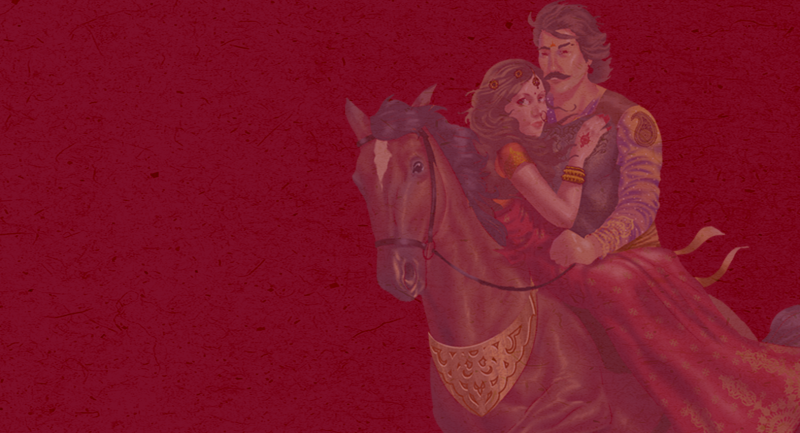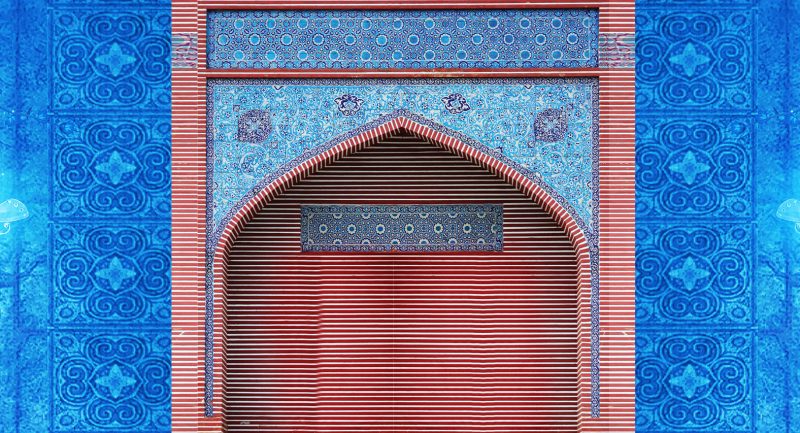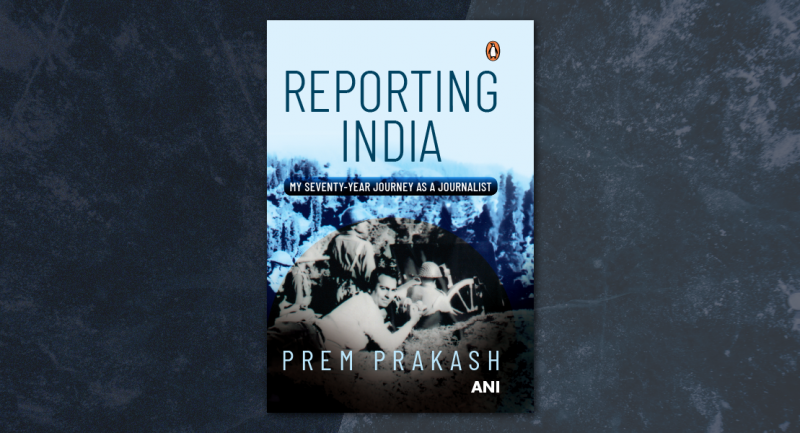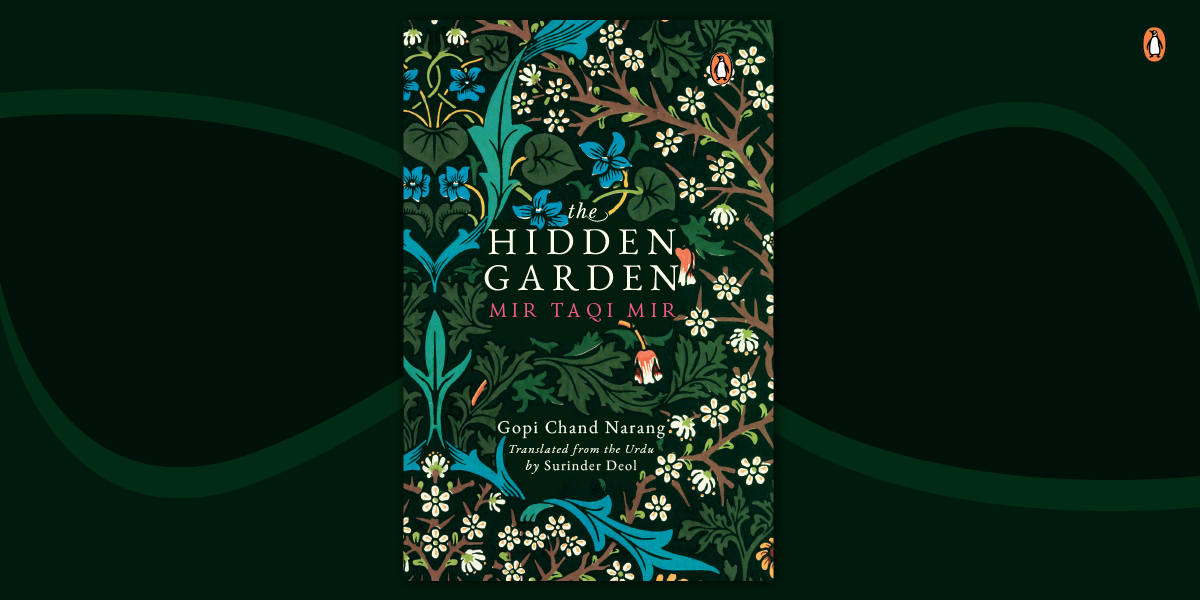
Mir Taqi Mir (1723-1810), known as the god of Urdu poesy (Khuda-e Sukhan), is widely admired for his poetic genius. The most prolific among all Urdu poets, he produced six divans. His deceptively simple poetry had an unusual mellowness and natural flow. Mir was the first poet to demonstrate the hidden beauty and genius of the Urdu language. From the raw Braj of Agra to the sophisticated Persian of Delhi and the mellow Awadhi of Lucknow, he wove them all into his verse. He took the half-baked Rekhta of the mid-eighteenth century to new heights, reaching the pinnacle of literary Urdu’s poetic and creative journey.
Gopi Chand Narang paints a poignant picture of the poet in The Hidden Garden, introducing readers of the grossly misunderstood poet, embellished with a substantial selection of Mir’s most memorable ghazals.
**
Mir was born in February 1723 in Akbarabad (as Agra was known then). He was named Mir Muhammad Taqi. When he grew up, he chose Mir as his takhallus (nom de plume). His ancestors had migrated to India from Hijaz in Iran a few generations ago. They first came to Dakan, then moved to Ahmedabad, and finally settled in Agra. His grandfather got the job of a faujdaar (a position in the Mughal army) and he lived a decent life; he died while he was travelling to Gwalior, leaving behind two sons. Mir’s father, a dervish who was called Ali Muttaqi out of reverence, pursued the path of inner knowledge from his early age. Over the years, he gained a lot of followers within and outside the community. He remained busy day and night, his eyes moist with tears, in the remembrance of God. He was a man of utmost humility,a man free of prejudice, a perfect Sufi. He never became a burden for anyone else. In his autobiography, Zikr-e Mir, Mir talks about his father in a highly respectful and reverent tone, dwelling at length about the lessons that his father gave him from his early years. Here, in a nutshell are some of the things he was told:
ai pisar i’shq bavarz, I’shq ast k dariin karkhaana mutasarrif ast:
Son, always adopt love because love is the dynamic force that binds and controls this universe. Nothing great can happen unless you put a lot of love into your endeavour. If you take love out of your life, it becomes barren. All things around you are the manifestation of love. Water is love, so is fire. Even death is love’s drunken stage. The night is the time when love sleeps; the day is when it wakes up. When you fill your heart with love, it attains perfection. Virtue is its union with love; sin arises when it separates itself from love. Paradise is attractive because it is filled with love; hell is a place of horror because there is no love to be found there. The practice of love is more significant than any prayer or pursuit of knowledge. Son, this world is nothing but a momentary excitement. Don’t indulge too much in it. Love for God is the only real thing. Prepare for the journey that starts after this life is over. My son, you are the treasure of my life. What kind of fire burns in your heart? What is your passion? What do you want to be in your life? (When Mir heard his father ask these questions, he had no answer; tears rolled down his cheeks.) Son, be a nightingale whose spring never ends. Admire beauty whose colours never fade. Keep your heart always strong. Always be ready to face odds in life. The world changes continuously. Do not be depressed when things get bad.
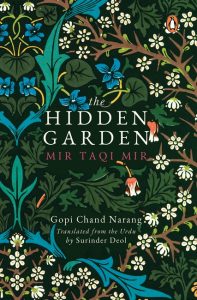
There is no doubt that these teachings had a lasting impact on Mir’s psyche, and he tried to live his life following these high ideals. Mir mentions that one day his father felt the urge to go to Lahore to meet another Sufi who gave sermons by the river Ravi. The old man reached Lahore with great difficulty, but to his disappointment, this so-called Sufi was a fraud who was deceiving poor people by muttering some words in Dari language which they did not understand. On his return journey, God rewarded his father by giving him a disciple, known as Sayyid, whom he brought with him to Agra, and this guest gradually became a member of the household. Sayyid taught Mir, who was seven years old at the time, to read the Quran. Mir called this person ‘uncle’ out of affection. His father and his ‘uncle’ became spiritual companions, andthey could not live without each other’s company. When Sayyid died, a part of his father died with him. Mir wrote, ‘My father threw away his turban, tore open his shirt, and scarred his chest with constant battering.’ On the third day after the death, when friends and admirers gathered to mourn, Mir’s father announced that from that day onwards, he should be called Aziz Murda—someone who has lost a dear friend or a companion. He became famous by this name, and he spent the rest of his life shedding tears each day.
**







